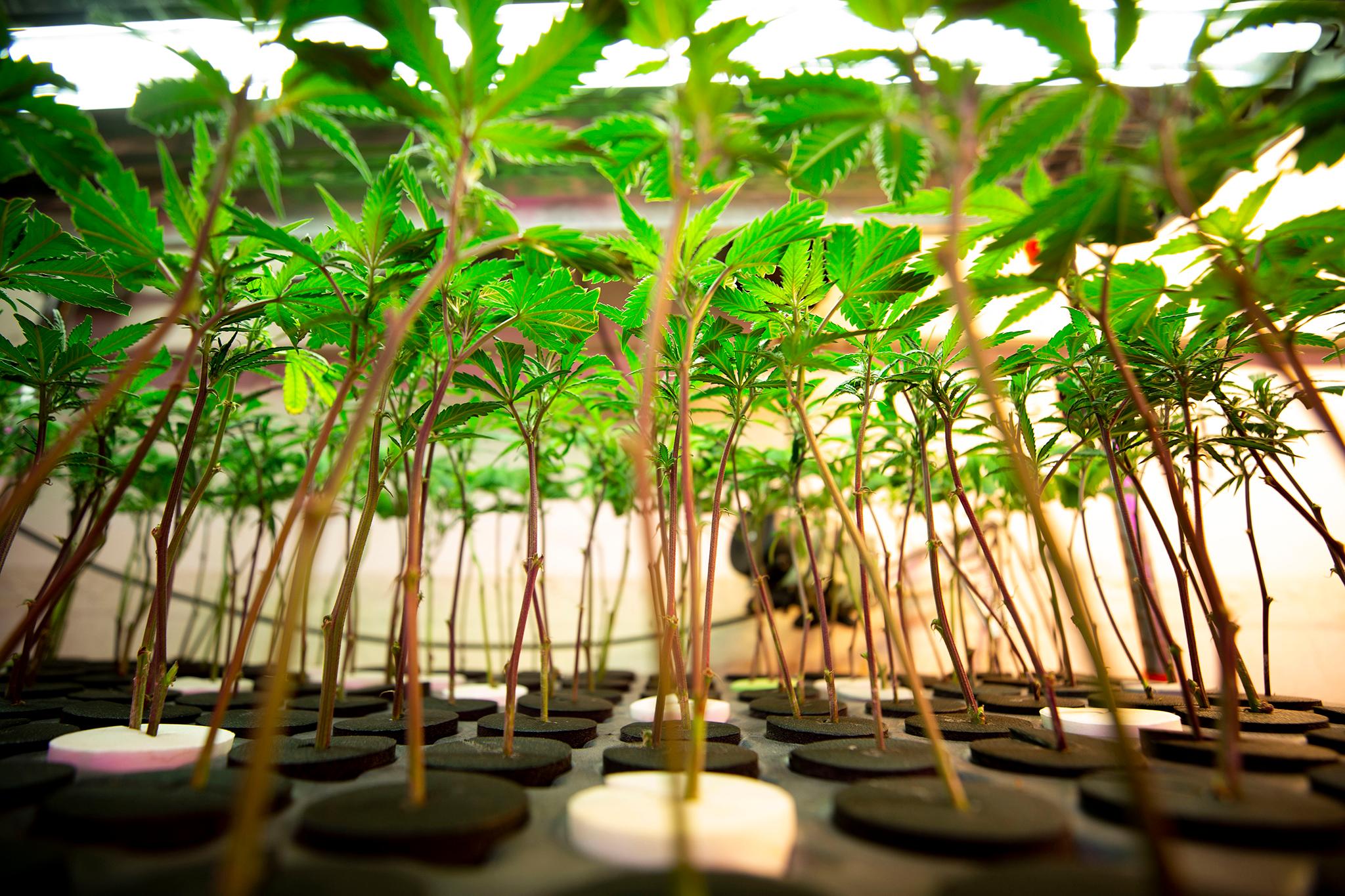
The Colorado Springs City Council has taken a formal stance against two ballot measures that would legalize and tax recreational cannabis sales in town for the first time.
Members voted 6-3 in favor of a resolution Monday night that describes legalization as a change that would lead to more crime and negatively impact economic growth. Supporters of the resolution said its passage was a symbolic gesture ahead of next month’s election.
“Citizens deserve to know where their city council stands on the issue,” said District 1 Rep. Dave Donelson, who introduced the resolution during Monday’s meeting. “I have many deep concerns.”
Colorado voters legalized recreational sales statewide in 2012, but cities like Colorado Springs still have the power to prohibit commercial sales within their jurisdiction.
If approved by the city’s voters, Question 300 would repeal Colorado Springs’ ban on recreational pot sales, which was enacted in 2013. It would also allow the city’s 114 existing medical marijuana dispensaries to apply for recreational sale licenses.
Question 301 would impose a new 5 percent sales tax on recreational marijuana.
During Monday’s council meeting, members spent over two hours discussing their views on the ballot questions and listening to public comment before voting on the resolution. Attendees expressed a range of opinions.
Dr. Kenneth Finn, a Colorado Springs resident and former member of the statewide task force on Amendment 64, cautioned against loosening laws around marijuana sales generally, arguing that it is poorly regulated and burdens the local healthcare system.
“We already have legal drugs like alcohol, tobacco and opioids, and we know how that turned out from a societal standpoint,” Finn said.
Dave Dazlitch, vice president of government relations for the Colorado Springs Chamber of Commerce, also spoke against legalizing recreational sales. He said he worried it would hurt job recruitment for large employers in the city, like the military.
“Federal prohibitions are black and white and there are restrictions for those in the defense community who are already having trouble recruiting for jobs,” Dazlitch said. “Our defense industry makes up 40 percent of our regional economy.”
Councilman Wayne Williams expressed concern that businesses neighboring medical dispensaries wouldn’t have a say in whether their neighbors could apply for recreational licenses, which may bypass local zoning rules.
Councilmembers Nancy Henjum, Bill Murray and Yolanda Avila were in the minority opposed to the resolution.
Residents have spent years asking leaders to take action on regulations and zoning for recreational sales, said Avila.
“And we’ve said ‘Nope, nope, nope,’” Avila said. “I feel like we’re the moral police. The bottom line is recreational marijuana is here and now it’s about capturing the funding and actually working with it.”
Supporters of legalizing recreational sales called the council’s resolution shortsighted.
Colorado Springs residents can already drive to other cities that allow recreational sales, including Manitou Springs and Pueblo, said Stephanie Vigil, a resident and organizer with the issue 300 and 301 campaigns.
“We’re trying to change where the tax revenue ends up. We’re losing money every day to other communities that could go to our government,” Vigil said.
Vigil also stressed that the ballot issue was the public’s decision — not Council’s.
Ballots for the Nov. 8 election will be mailed to voters starting Oct. 17.









